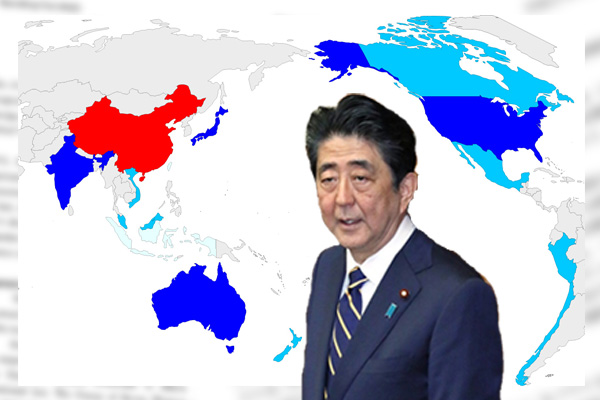Historian Niall Ferguson in his review of past pandemics has pointed out that unknown viruses could intensify existing tensions between social classes and between nations. Chinese President Xi Jinping has been criticized at home and abroad for failing to prevent the Wuhan coronavirus from expanding. The Wounded Dragon has grown brute to conceal his disadvantages, cracking down on Hong Kong, increasing military pressure on the Taiwan Strait, South China Sea and East China Sea, and escalating military tensions on the border with India.
Only the United States as superpower can stop China. However, the Bald Eagle as leader of the free world is fluttering his wounded wings, divided due to racial tensions and wealth gaps. A white police officer’s killing of a black man has prompted citizens to vent their frustrations in the U.S. society fatigued with the corona crisis. The strength of the United States facing a national crisis should be that people will be united under the president, but President Donald Trump’s remarks are now working to divide the country instead of uniting it.
Trump failing to unite Western countries
U.S. social chaos leads directly to a decline in the country’s leadership and unifying power in the international community. Europe, which had viewed China only as a huge lucrative market, has got awaken to the danger of China’s expansionism at last, resulting in an opportunity for patching things up with the U.S. Angered by China’s attempt to buy out British, French and German high technology companies amidst the coronavirus pandemic, Europe is accelerating its breakaway from China.
Nevertheless, the U.S. is failing to take advantage of this good opportunity. When President Trump proposed a Group of Seven summit in the U.S. in June, German Chancellor Angela Merkel at odds with Trump refused to attend on pretense of the pandemic disaster, botching the U.S. plan to demonstrate the Western unity at home and abroad. The failure of the plan was attributable to Trump’s surprise proposal to invite Russian, Indian, Australian and South Korean leaders to the “G7-plus” summit. Prime Ministers Boris Johnson of Britain and Justin Trudeau of Canada rejected the comeback to the annual summit by Russia that annexed the Crimean Peninsula. Trump has had no choice but to postpone the G7-plus summit until September.
Strategic opportunity for Prime Minister Abe
Japan at the front to deter China has got a strategic opportunity to involve Europe and Southeast Asia that have been remarkably breaking away from China due to the pandemic. The time has come for Japan to plan a clever strategy to move major powers even without massive military capabilities. In the past, Japan invented the Asia-Pacific Economic Cooperation forum and led Australia to propose the APEC, achieving the regional cooperation framework. The administration of Prime Minister Shinzo Abe devised a free and open Indo-Pacific strategy, leading then U.S. Secretary of State Rex Tillerson to offer to become the promoter of the idea. The Hawaii-based U.S. Asia-Pacific Command was even renamed Indo-Pacific Command.
Japan now could expand the Japan-U.S.-Australia-India Quadrilateral Security Dialogue as the core of the Indo-Pacific strategy into a Quad-plus forum including Vietnam, Indonesia, Taiwan and others. On the economic front, Japan could persuade the U.S. and Europe to join the Trans-Pacific Partnership agreement, expanding the free-trade pact into a TPP-plus pact. It is up to the Abe administration’s competence and flexibility for Japan to implement its clever strategy.
Hiroshi Yuasa is a Planning Committee member and a senior fellow at the Japan Institute for National Fundamentals. He is a columnist for the Sankei Shimbun newspaper.


